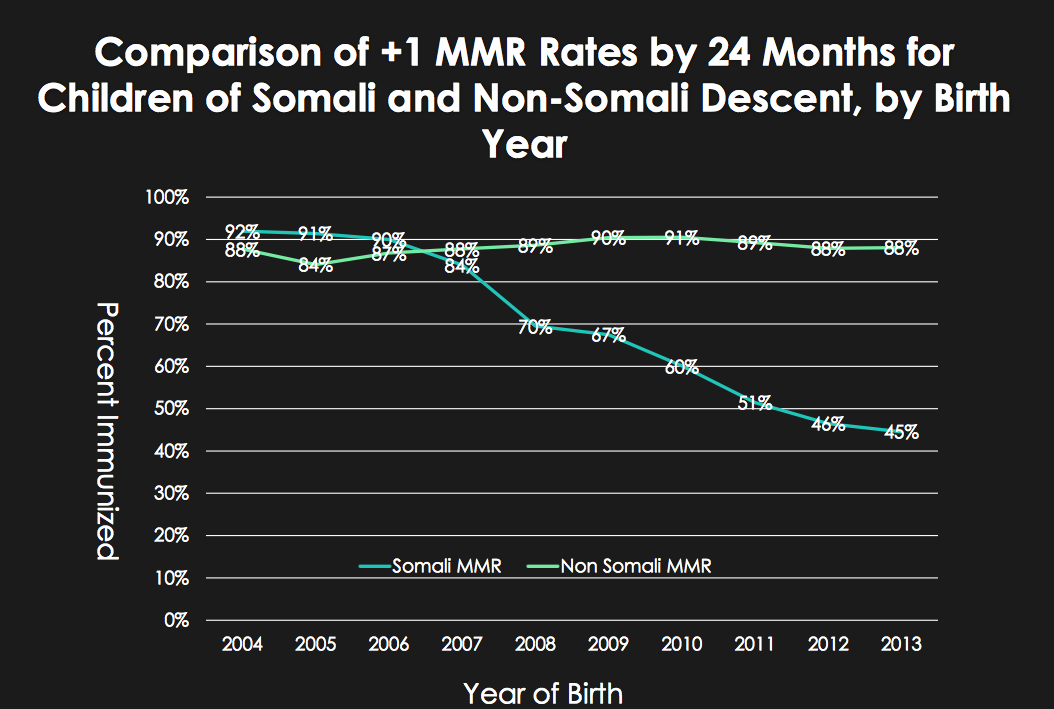Minnesota has seen 73 confirmed cases of the measles this year, the Minnesota Department of Health announced Friday. For comparison, there were 70 cases reported nationwide in 2016.
Minnesota’s outbreak has been tied directly to anti-vaccination efforts in the state. Activists target the Somali immigrant community in Minnesota, the Washington Post reports, spreading a widely debunked theory that links the measles, mumps, and rubella vaccine to autism. In 68 of the cases recorded so far this year, patients have not been vaccinated, and state health data shows the vaccination rate among Somalis plummeted from 92 percent in 2004 to 45 percent in 2013.

Anti-vaccination activists cast their work as an awareness-raising campaign. “The Somalis had decided themselves that they were particularly concerned,” prominent anti-vaccination activist Andrew Wakefield told the Washington Post. “I was responding to that.”
However, the campaign has resulted in the outbreak of a disease that can be fatal, especially for young children. The tight concentration of cases—almost all have been recorded in one county—also increases the risk for further transmission. “It is a highly concentrated number of unvaccinated people,” University of Minnesota professor Michael Osterholm told NPR of the outbreak last month. “It is a potential kind of gas-and-match situation.”
Measles vaccination has been hailed as “one of the best buys in public health” by the World Health Organization, an intervention that prevented over 20 million deaths from 2000 to 2015. Public-health officials declared the measles eradicated from the Americas in September of last year. While cases still crop up in the United States, the worldwide numbers are much higher: Measles accounted for 134,200 deaths globally in 2015, according to the World Health Organization.




